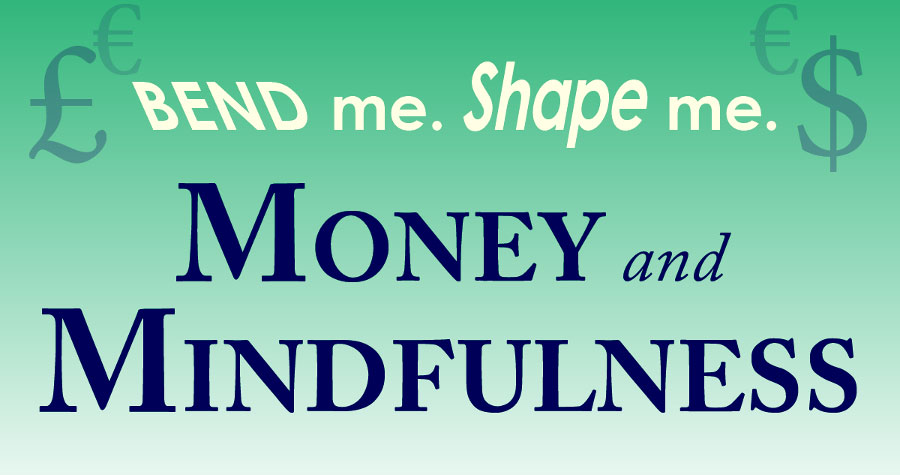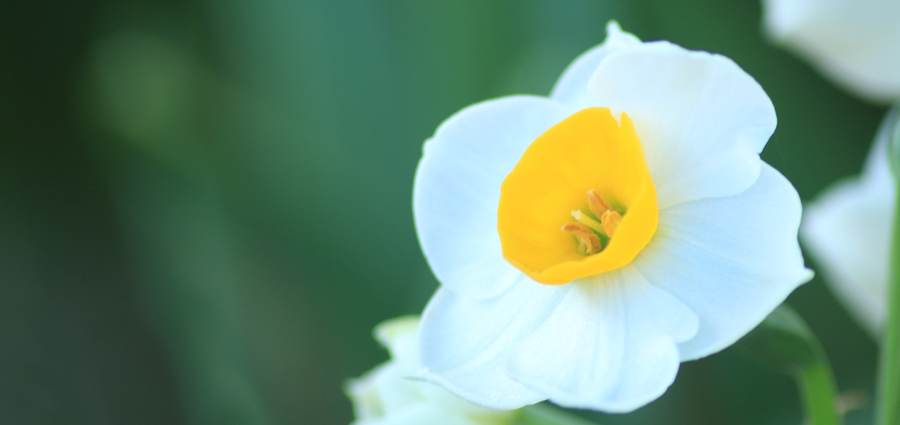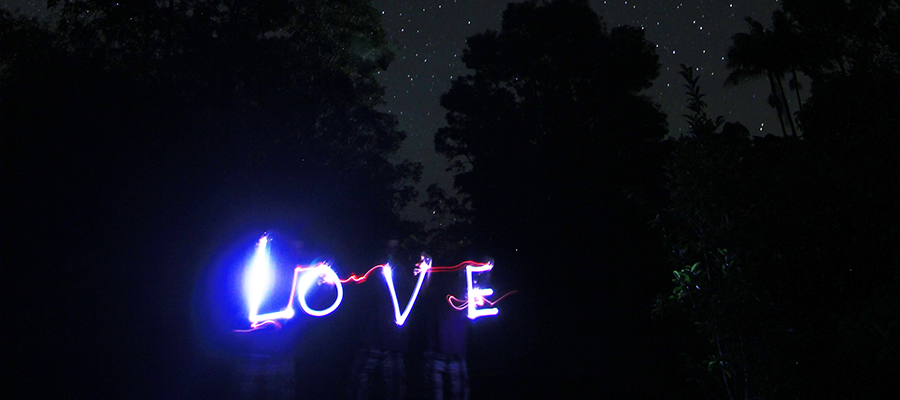During one wintry month at University, my bank account and refrigerator were in similar condition: empty with reinforcement three days away. The first of the month was to deliver a paycheck, and I was too stubborn to ask friends for a front.
What would I do? How would I eat?, I pondered as I finished a swim at the University pool. Showered and towel dried, I proceeded along a broad hallway. I hadn’t even bothered to dry my hair and I could feel crisp, focused wafts beckon cooler climes outside.
Downcast, I gazed at well-polished pattern of tile as classroom mumblings echoed of students in session. Standard issue cream with aqua blue and grey vein, tile-by-tile, step-by-step, when in middle of hallway, my foot landed atop a newly minted $20 bill.
I gazed around for its owner. I was alone in the hallway. Hooray! The bill was mine. I considered it a gift from the heavens: 20 dollars seemed saving grace on that day.
Since University, my relationship with money has fluctuated dramatically: I have squandered money on expensive clothes worn once or twice, yet I was also deeply grateful for that $20 bill. One pendulum swing to the next, I coveted money, yet loathed those who used money as dominion over others. I have, at times, been ridiculously generous with friends yet, also, ruthlessly haggled with a simple blanket vendor who was running alongside our group travel bus in Peru. I have never forgotten how weighty I felt once his lovely alpaca blanket was in hand.
I couldn’t seem to calibrate my relationship to money, but through the practices of mindfulness, my mercurial relationship toward finances was brought into focus.
It’s All About Relationship
Conscious Living and Money: Mutually Beneficial
A few weeks ago, a talented yoga instructor shared a covert, yet widely held, misconception that being a strong yogi means sometimes being broke. Upon further connotation, one could also venture that money will not flow to practitioners of yoga.
This myth is to be clarified: Financial bank balance has nothing to do with your capability as a practitioner of mindfulness or yoga.
Money is a particularly compelling and motivating aspect within our overall life curriculum. Accordingly, I have learned to treat it with respect.
Our relationship to money, potentially, refines our awareness. How do we relate to money and financial gain? Do we take advantage of others to exclusively support our personal bank account? Do we support healthy relationships and abundance for others by ensuring vendors are paid a fair price toward our end goal of producing product?
Conversely: Are we emotionally invested in feeling impoverished? If so, why? Can we enhance self worth and offer personal permission for financial gain?
Does Concept of Money Determine Value in People?
In my early years, I valued and deferred to others based on portfolio, professional position or societal status. I placed higher value on money than meaningful relationship.
Through study of mindfulness, I found that many accomplished, balanced and very interesting people had developed quite different relationships with money. Their relationship to money was freeing, while mine was controlling. They didn’t covet money or hoard or let the bank balance gloss over an ability to deeply appreciate others. Then, once I realized well heeled people had the potential to be an arse, like anyone else, I relinquished the valuing of others based upon bank account. An entirely new way of relating opened: I developed many more enriching, nourishing relationships. I moved from judgment based upon designer bag, to seeing depth of experience and true wisdom.
Now, I marvel at the housekeeper who lovingly pays attention to detail, the busker who sings for the joy of art, the mechanic whose creativity is with engine and wrench.
Happy for those of Greater Wealth
Through immersing myself in the experience of mindfulness, I became happy for those of greater wealth. I was raised in a financially secure family that highly valued money and spent carefully.
Through mindfulness, I released the burden of envy surrounding those with greater wealth and in the process, I gained an ability to meet a person for the depth of who they are, rather than a role they often played to fulfil outer standard. Amount of wealth is simply partial component of a life dossier.
Impulse: Little Items Add Up
In the past, I focused on larger expenditures. Yet by being more aware and mindful of day-to-day actions, while seeing whatzits end up in my garage–just one step from the landfill–I realized little items quickly added up. My impulse buys, in many cases, took up more space and collectively cost more than a single larger expenditure.
Retailers, savvy to impulse buys, tempt us by placing fleetingly clever widgets near to checkout. Through the practice of mindfulness, I’m less prone to impulse. Less impulse = fewer empty purchases = fewer items in my garage = less items headed to the landfill = better for the bank account and environment.
Shopping Didn’t Fill the Hole in My Heart
I have always enjoyed the feeling and drape of clothing, modern simplicity and pleasing aesthetics. Casual Parisian style, reliable German quality and British commitment to artistry and creativity stir my spirit.
Yet, as a child of America, I was fed a steady media diet of consumerism, ever encouraged to buy gadgets and widgets. Shopping, for some, has become as addictive as alcohol, drugs or sex–a replacement for love and feeling valued.
It took time to learn that shopping did not fill a gaping hole in my heart, an inner yearning of love me, love me, love me. Once I decided to work just as hard for inner freedom as I would for the outer paycheck, through the practices of mindfulness, a bridge across that gaping valley slowly, but surely, was built.
Income Does Matter – to a Point
Earning money does improve daily well being–but only to a point. A Princeton study found an earning threshold, where once beyond an income plateau, people are not happier. Where are greater happiness and contentment to be found?
Money can bring Happiness–but not Freedom
While money can bring happiness, it does not bring inner freedom.
Monumental skirmishes among family, friend and colleague, often centre around money. In addition, people of all income can worry about money: Those from lower income may have a constant stress of seeking money while those of higher income can fret immensely about how to keep it.
Our relationship to money has potential to bring an inner freedom.
For simple example, when I am generous with tips, rather than stingy, I am at ease. This basic generosity enhances inner satisfaction and peace. I have also found that my day-to-day relationship with money provides greater satisfaction than end-of-year planning before tax time.
In addition, as my inner compass guides to appropriate purchase of items that support the skills I bring to the world, I feel peaceful. Yes, I wish to dress nicely, but I am not in the business of trending fashion as Victoria Beckham, for instance. She serves a different role than me; and her relationships with clothing expenditures should best fit her unique circumstance. The amount of the expenditure is not the point: The relationship to and role of the expenditure as well as our relationships to others and our world serves as the curriculum for practitioners of mindfulness.
Money Helps Dreams Come True–Big and Small
Some of us are, like the Beckhams, are in wonderful position to support sweeping global change through charitable contributions and a sharing of wealth for greater good. Money is a powerful flow of energy that creates jobs, supports families, transforms educational systems and improves infrastructures. How wonderful to be in a position to make dreams come true!
Equally, there are many heartfelt acts of kindness in local communities. A dear friend fondly recalls the kindness of her father who annually distributed food from the back of a lorry during the Holidays. She has never forgotten his acts of kindness and years after her father’s passing, she steps forth in her world with equal generosity.
Then, on random occasion, the anonymous donation of $20 falls from pocket to floor, in wait of a hungry University student. On that day, the simplest of dream also came true.
Bend Me, Shape Me
These lyrics by The American Breed, originally written about love, can also express our relationship to mindfulness and money:
Bend me, shape me
Anyway you want me
You got the power
To turn on the light
For videos about mindfulness, alignment-based movement and more, subscribe to Karuna’s YouTube Channel.




